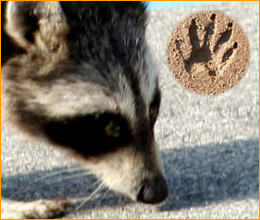



The article from the CDC says to decontaminate the pool after raccoon poop is to let it filter for 24 hours, then backwash, then change the filter media if possible. So I would say that your level of concern is probably a bit over-wrought BUT it’s your pool and your comfort level so you have to do what you think is best. This is not easy work though as you will definitely be putting in a lot of elbow grease to treat the water and then clean out the filter so you have to weigh that against your level of concern.Ĭhances are, if your finding raccoon scat now, raccoons and other creatures have almost certainly used your pool as their personal toilet bowls before. If you did the cycle of clarifier and deep cleaning the filter a few times in a row, the chances of disease transmission should go down. After using this product as-directed, you could then either deep clean your sand filter OR change the sand media if you really want to. It’s capable of reducing the incidence of contracting cryptosporidium and Giardia which have infectious agents that both are smaller than the roundworm eggs you’re looking at. SeaKlear has a two-part clarifier system that works well with sand filters and is designed to help trap particulates down to the 0.5 micron level. But if its so rare and you have to consume a large quantity of the eggs, why does the CDC recommend such drastic measures for cleaning the pool? Do I really need to drain the entire pool and replace the sand? Am I freaking out over nothing?Įverything I've found regarding humans contracting it is that they have to consume a large quantity of the eggs and its extremely rare. I'm afraid I got their eggs on me because I was in the pool and I'm going to contract this illness. The cleaning method if you find raccoon feces in your pool is to drain, wipe down walls and refill and replace filter media.Ĭan anyone please help me? I am freaking out. I already washed out my filter bag so I have no sample to take. It can be transmitted to humans and is fatal. The CDC recommends taking the poop sample to be tested for baylisascaris. I read that the eggs aren't killed by chlorine. I immediately started googling what to do and came across Raccoon Roundworm aka baylisascaris. I immediately got out and checked the bag, there was brown mush along with a bunch of undigested seed as well as maggots? Maybe? Just now I got in the pool and was walking around vacuuming with a pool blaster (battery operated vacuum with its own filter bag) and I sucked up what I believe to be a raccoon poop. I skimmed it out and shocked the pool and didn’t really worry about it. Several years ago I found what I assumed to be a raccoon poop in the pool.


 0 kommentar(er)
0 kommentar(er)
